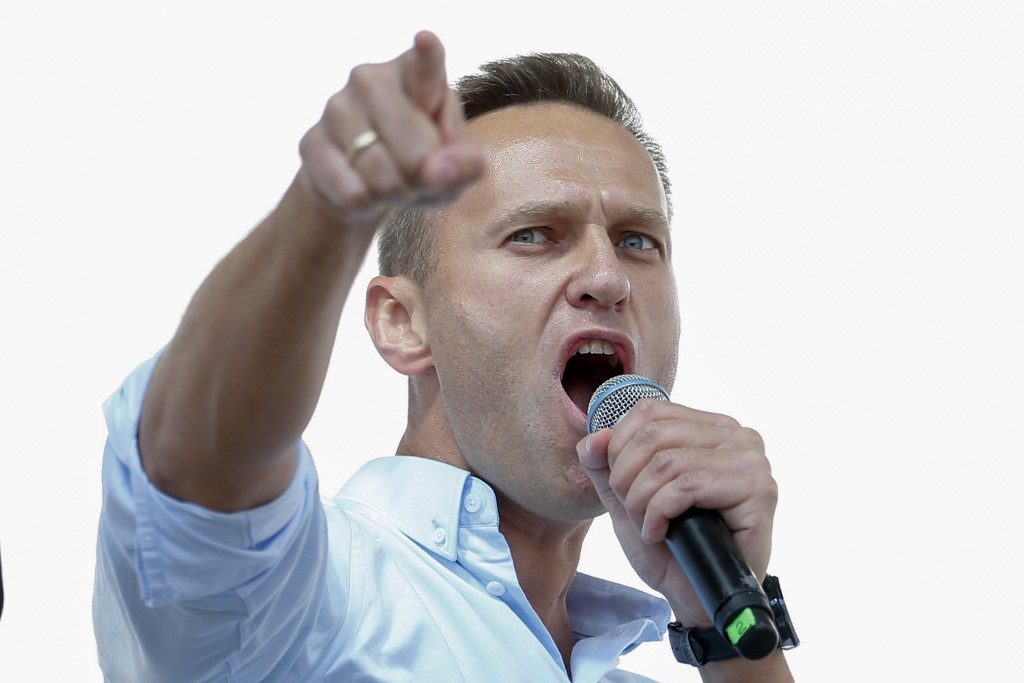SUMMARY
This is AI generated summarization, which may have errors. For context, always refer to the full article.

Russian opposition politician Alexei Navalny is likely to remain in Germany for weeks as he still requires lengthy treatment to help him recover from poisoning, his spokeswoman has said.
The 44-year-old Kremlin critic was discharged on Wednesday, September 23, from a Berlin hospital after he fell ill on a plane from Siberia and tests found he was poisoned with Novichok nerve agent.
“Navalny’s recovery process will naturally take a long time,” his spokeswoman Kira Yarmysh said in an online broadcast late Thursday, September 24.
“He is staying in Germany for now, he will undergo rehabilitation there. It’s clearly not a question of a few days and probably not a couple of weeks,” she said.
‘Good people’
In a blog post on Friday, September 25, Navalny thanked Russian pilots who made an emergency landing when he fell ill and the paramedics who first treated him, saying he does not know their names but they saved his life.
Their actions “simply gave me an extra 15-20 hours of life,” he wrote. “Thank you unknown good friends. You are good people.”
He suggested that according to the “murderers’ plan,” he was supposed to die while on the flight from the Siberian city of Tomsk to Moscow and arrive in a “black body bag.”
“That’s how it was heading but then began a chain of lucky coincidences and snappy actions by unknown good people,” Navalny said.
Upon learning of a health emergency, the pilots from the S7 airline landed in the Siberian city of Omsk despite the airport receiving a bomb threat, he said.
Afterwards paramedics who treated Navalny at the airport diagnosed “poisoning” and gave him a dose of atropine, used to treat nerve agent poisoning.
The Kremlin has denied targeting Navalny.
This week, the French daily Le Monde reported that in a phone call with France’s President Emmanuel Macron, Putin suggested Navalny might have taken the poison himself “for a non-specified reason.”
Russian doctors said tests did not identify any poison in Navalny’s body and have wheeled out a number of eyebrow-raising theories, suggesting the opposition politician’s health could have deteriorated due to extreme dieting or fatigue.
Earlier this week, Navalny said that he still cannot throw a ball with his left hand and is struggling to write.
He said he was seeing a physiotherapist every day, working to regain balance and control of his fingers, and may attend a rehabilitation center.
Navalny also said he had asked a neuropsychologist how to “get back not only from the physical point of view but in my head too,” and was advised to read a lot, write on social media and play video games.
His spokeswoman said Thursday that Russian bailiffs had frozen Navalny’s flat in Moscow and bank accounts over a court judgement ordering him and his allies to pay almost 88 million rubles ($1.1 million at) to a company they targeted in an investigation.
Some political analysts suggested the move could be part of a campaign by Russia to dissuade Navalny from returning. – Rappler.com
Add a comment
How does this make you feel?
There are no comments yet. Add your comment to start the conversation.